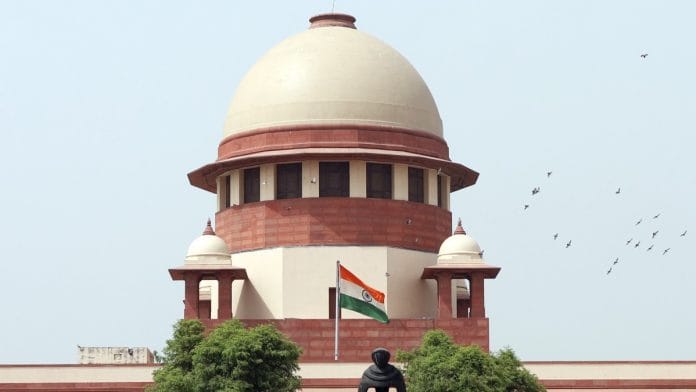New Delhi: The Supreme Court Monday came down heavily on the Jharkhand government for arresting a journalist from his bedroom in the middle of the night in July this year, and described the state police’s action as “excessive and arbitrary”.
“You gun for him. This is not the way to treat the media or a journalist. This is thorough lawlessness in the state of Jharkhand,” observed a bench of justices D.Y. Chandrachud and Hima Kohli. The bench was hearing an appeal by the Jharkhand government challenging the state high court’s order granting bail to journalist Arup Chatterjee, who works with News 11 Bharat.
Chatterjee was arrested on the intervening night of 16 and 17 July on charges of extortion but was released two days later, after the high court gave him bail on his wife’s petition.
During the hearing Monday, the top court strongly disapproved of the actions of the state police. However, the remarks were not a part of the court’s written order.
“This is all excessive use of state power. You question us and we pick you up in the night from your bedroom.’ You are not dealing with a terrorist, but a journalist,” the bench told the senior counsel appearing for the Jharkhand government.
On his part, the state counsel submitted that Chatterjee was facing multiple charges of extortion and cheating. According to him, the high court did not wait for the police to submit their status report or their response to the petition filed by Chatterjee’s wife before giving its order.
Also Read: Allahabad HC denies bail to Kerala journalist Siddique Kappan — read the full text of judgment
HC got ‘carried away’, says state counsel
The state counsel argued that the high court got “carried away” when it said the police didn’t follow the procedure prescribed under Sections 80 and 81 of the Criminal Procedure Code (CrPC).
These two provisions lay down the procedure to execute an arrest warrant outside the district in which it is issued. According to Chatterjee’s wife, the police from Dhanbad arrested him from his residence in Ranchi without intimating the local Ranchi police, as required under the CrPC.
Justice Chandrachud interrupted when the state counsel made this argument and said, “Judges with a conscience will get carried away when there is arbitrary use of state power. The state is under obligation to protect citizens.”
The bench then went on to observe that it would prefer not to intervene at this stage, particularly because the bail order was an interim one. “The matter is still pending in the HC; it is not time to intervene right now,” the court told the state lawyer, refusing relief.
‘Targeted for story against corruption’
According to the petition in the high court, Chatterjee was harassed and targeted for broadcasting a story against corruption. His wife alleged that the family was not allowed to meet him after he was arrested.
The state questioned the maintainability of the petition, contending that it was filed directly under Article 226 of the Constitution (which empowers high courts to issue orders to any person or authority), without exhausting the other remedies available under criminal law.
But in its bail order, the high court observed that the documents placed before it showed prima facie that the police hadn’t followed the arrest procedure specified in the CrPC. No prior notice was issued to Chatterjee, asking him to appear before the police for questioning, the court said.
“Prima facie, it appears that the direction of the Honourable Supreme Court in the case of Arnesh Kumar and D.K. Basu has not been followed and in those cases, the Supreme Court has gone to the extent that if the directions are not followed by the police officials, contempt proceedings can be initiated against the erring officer (s) in the High Court having territorial jurisdiction,” the HC noted in its order, referring to two landmark judgments of the Supreme Court.
(Edited by Siddarth Muralidharan)
Also Read: ‘This is yellow journalism’: SC refuses relief to journalist convicted for defaming lawyer






